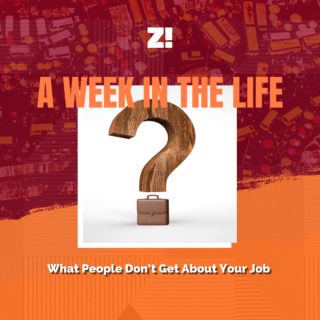Jeremiah*, 30, worked non-stop 18 hours a day for 18 months until his health forced him to take a break, but his boss had other plans. From earning in dollars to living on vibes, read how the ting go.
I spent my NYSC in Abia State serving as a teacher in a public school. During that time, I saved up my monthly allowances to buy a laptop and learnt how to build websites through tutorials. In 2018, after my youth service, I saw an internship opportunity online. The company promised that after the internship, I would be offered employment. I took a leap of faith and left for Lagos.
The internship was a breeze because I already knew most of the things they taught. I was just there for networking and making connections. I was the first person to get a job from my set — I was hired even before the end of the internship. I’m still at that job to date. The company works with the government, so there are usually lengthy intervals (about four months) between projects where there is no work. I had to find a way to fill in those downtimes. Early 2019, I found an online software engineering peer-review cohort, applied and got accepted.
How I became a workaholic
I was the least experienced during the cohort, but I made the extra effort to upskill. I would spend up to 12 hours writing code. I desperately wanted to level up, and so I gave it my all and some extra. At the end of the cohort, I interviewed with a US-based startup and got a three-month internship contract.
The cohort facilitators would supervise the contract. The initial pay was $400 monthly. If I performed well after the internship, I would be offered a full-time position and my compensation, doubled. I couldn’t believe my luck.
I resumed my internship and found out that I was the only other person in the startup. The founder was a back-end engineer; I’m a front-end developer.
My internship contract stated that I was only meant to work a maximum of six hours daily, but I wanted to prove my worth and get more dollars at the end of the internship period. I ended up working twice longer than required. I built the whole front-end of the application from the ground up.
At the end of the internship, the founder refused to offer me a contract, but he did not let me go. He claimed he was still testing me and asked me to intern for another two months.
After the two months had elapsed, he wanted to extend the internship yet again. The cohort facilitators had to intervene. They demanded that he sign me on full-time and update my monthly payment or let me go. He eventually conceded. He was supposed to double my pay, but he only increased it by $200. He also delayed payments by weeks.
The situation wasn’t ideal, but I needed the money. I am the firstborn, and my family depends on me for finances. $600 a month wasn’t nearly enough for the amount and value of my work, but when converted to naira, it wasn’t so bad.
Here’s what my typical workday looked like:
Remember that I took this job to supplement my other job.
I would wake by 7 a.m. and go to my day job by 9 a.m., working till 5 pm. Then I would rush back home to resume the remote job. Ideally, I was supposed to close for the day at 1 a.m., California time, but I often found myself working until 6 a.m. the next day.
I worked like this for another year. During that time, the startup launched and started getting customers and revenue. My workload quadrupled, but the founder refused to hire new hands. I’m a front-end developer, but he forced me into doing backend work as well. I wouldn’t have minded, but it was how he went about it. He never acknowledged his faults, always looking to blame me even when he was wrong. He also refused to hire a designer, so I was ideating designs as well as implementing them.
I worked like this until my body shut down
I didn’t get any paid leave; I worked during Christmas and the New Year. I was on my laptop 18 hours a day with no breaks and no time off.
Last year, when my father fell sick, I took a break from my Nigerian job and travelled to visit my family in the village, but I still had to work at the remote startup. The power supply is poor where my parents live, so I would go to a late-night restaurant to work and sometimes stay there till dawn.
There were days when I would break down in the middle of a workday (night) and weep. My physical and mental health fell off, and my productivity nosedived.
It was brutal.
One day, I explained to the founder that I needed a break. The work was taking its toll on me, and I feared I could fall sick or slump at any time. He refused. I begged and begged until he reluctantly agreed, but there was a catch: I had to complete a few more tasks before I went on leave.
I told him I could not handle anything new. At that point, my hands were trembling from stress and lack of sleep, and I couldn’t focus on anything.
COMPONENT NOT FOUND: newsletter-blockI got the sack on my second day of leave
Any developer who has ever worked at a startup knows that things need to move fast. Founders want to ship products and updates, and they typically don’t care about code quality. Many times, developers have to do lots of patchwork and sellotaping to keep up with demand.
I’m a workaholic, so I blocked out some time to clean up the codebase and make it more readable even while on leave. I also wanted the codebase to be easy to read for future hires as the company was expanding.
On the second day, I went to GitHub and discovered that the founder had removed me. He also deleted me from Slack and revoked my access to every other company channel.
I didn’t receive a termination notice or anything — I didn’t even get fired. I got dumped.
The aftermath
After the initial shock, I just went to sleep. I slept like my life depended on it (honestly, it did). For two weeks, I slept like it was the only thing I was born to do.
Two weeks later, I hadn’t heard from the founder. He fired me but was stalling on paying me. I reached out to the cohort facilitators to help demand my outstanding remuneration. He resisted at first but eventually paid up.
A month later, I got a recommendation to work for a startup in Nigeria. I’m also building this one from the ground up, but I like this one so far. My CTO is a designer, and his designs are delightful to implement.
What I learned
I now value my mental health more than anything else. I take care of myself and make efforts to be at peace. It’s a long, winding road, but I have made progress. My current income is not great, but I now have the semblance of a healthy work-life balance.
But it’s not been smooth at all
While I’m consciously rebuilding my life (and mental health), I’m not happy. As the first child, I’m the primary breadwinner. The startup I currently work at has run out of money, and I’m being owed for two months. I’m only staying put because I believe in the business, and I have stock options. They also rate me highly. However, I need money to sustain myself.
When I got fired, my father got into trouble. He lost a huge amount of money from the community esusu; I had to pull every last penny of my savings to get him out of trouble. Right now, I’m pretty much rebuilding my life from scratch.
Looking forward to something hooge
I‘m actively looking for a well-paying job. I constantly second-guessed myself at my previous job, but I’m great at what I do — I have built functional software from scratch at two startups. One year later, my code still powers the company whose founder dumped me; it is my work bringing them revenue, and I have nothing to show for it. I will not let another person make me feel small.
I hope to get a big break soon.




